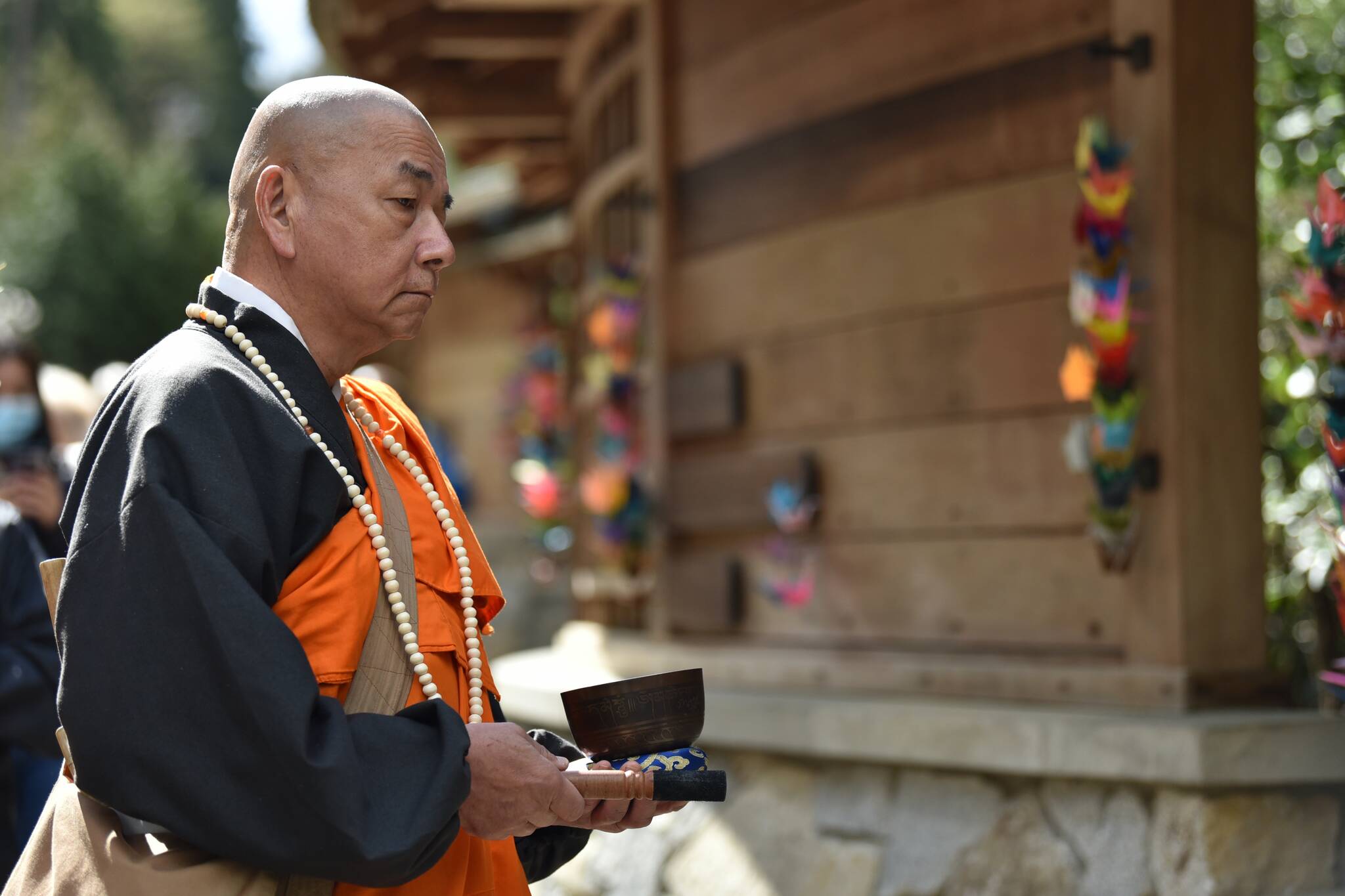As the names of 276 Japanese Americans were read out loud during the 80th anniversary of their exclusion and forced evacuation from Bainbridge Island, a gong was rung by a buddhist monk to honor the sacrifice of each family.
On March 30, several hundred people gathered at the Japanese American Exclusion Memorial at Pritchard Park to remember the dark history that occurred at Eagledale Dock during World War II.
Carol Reitz, president of the BI Japanese American Community, whose father Albert Tsuchiya was interned at Jerome, AK, and Tule Lake, CA, said what happened in 1942 was a big example of the impact an event can have on the life of generations of people.
“Healing may only occur when we find out what happened to you. When asked by an empathetic community willing to listen to the story, the story shapes their worldview. Understanding our history helps create an understanding of what happened to you, which encourages empathy,” she said.
Survivors shared their stories as a close-knit community stood witness, willing to listen and demonstrate the empathy needed for the community to heal.
Gov. Jay Inslee said 80 years is not enough time to prevent fear, prejudice and discrimination from being completed.
“This is a warning to future generations. This is going to have to be a continued effort by all of us against the power of fear, even from our own government on occasion,” he said. “Bainbridge Island showed the promise and the ability of standing up against the power of fear with a community of people who stood with their neighbors and welcomed them back when they had the courage to come back to Bainbridge Island. And Walt and Milly Woodward (of the Bainbridge Island Review) were the only editorialists on the entire West Coast to stand against this unconstitutional act. That’s part of the Bainbridge story as well.”
Survivor Frances Kitamoto Ikegami was only five when she and her family were forced into incarceration at Manzanar, CA and Minidoka Camps. She doesn’t remember much, but she did reflect on the reception her family received when they returned to BI. Ikegami said the Kitamoto family was fortunate because they still owned their land, but her father was worried about whether we would be able to retrieve it. So, he came back to the island first before bringing his family.
When he was on the ferry, he was met by quite a few people who welcomed him back. A few turned their backs on him as well. “But, Genevieve Williams came up to him and said, ‘Frank, it’s so good to see you. We’re glad you’re back.” She walked around with him to make sure that nobody accosted him, and when he went back to the family home he saw that it had been well cared for.
As other survivors returned there were many signs of community support and individual acts of kindness that helped them resume their lives.
“We were so lucky,” Ikegami said. “It’s so wonderful that we were able to resume our life and go on with our American dream.”



